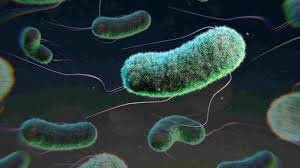E. coli : Outbreak

According to a report from the Centers for Disease Control and Prevention (CDC), a person died and 49 others fell ill following an E. coli outbreak linked to McDonald’s Quarter Pounder Hamburgers.
- Escherichia coli, commonly known as E. coli, is a type of bacteria that can be found in the intestines of humans and animals.
- E.coli is a rod-shaped bacterium of the Enterobacteriaceae family.
- While most strains of E. coli are harmless and even beneficial, some strains can cause illness and infections.
Some kinds of E. coli can cause diarrhea, while others cause urinary tract infections, respiratory illness and pneumonia, and other illnesses. - Transmission:It can be transmitted to humans through contaminated food, water, or contact with fecal matter from infected individuals or animals.
- The most familiar strains of E. coli that make you sick do so by producing a toxin called Shiga.
- This toxin damages the lining of your small intestine and causes diarrhea.
- These strains of E. coli are also called Shiga toxin-producing E. coli (STEC)
- The most common symptoms of E.coli infection include fever of more than 102 degree F, persistent diarrhoea, bloody diarrhoea, and vomiting.
- The main problem, however, is dehydration due to the inability of the patient to retain water and fluids.
- In very few cases, people may get acute kidney injury.




